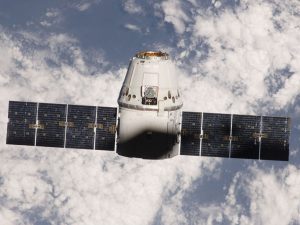The recent conclusion of SpaceX's 30th Commercial Resupply Services (CRS) mission saw the return of over 40 science and technology payloads sponsored by the International Space Station (ISS) National Laboratory, showcasing a diverse range of research endeavors. Notable among these were investigations exploring novel therapies for vision loss and cancer treatment, alongside advancements in space-manufactured optical fibers. Oculogenex's gene therapy aimed to combat age-related macular degeneration, Encapsulate's tumor-on-a-chip system sought to revolutionize chemotherapy testing, and LambdaVision investigated powdered protein for artificial retinas manufacture. Additionally, Flawless Photonics' project aimed to enhance the quality of optical fibers like ZBLAN through microgravity manufacturing.
The returned payloads also included projects from the National Stem Cell Foundation and the University of Connecticut, focusing on neuroinflammation mechanisms and producing novel biomedical materials, respectively. Furthermore, an educational project from Oklahoma State University, in collaboration with the Choctaw Nation of Oklahoma and Boeing, explored the effects of spaceflight on Choctaw heirloom seeds, aiming to inspire Native American students in STEM fields. These initiatives underscore the ISS National Laboratory's role in fostering innovation, advancing scientific knowledge, and promoting collaboration across diverse scientific disciplines, both in space and on Earth.























